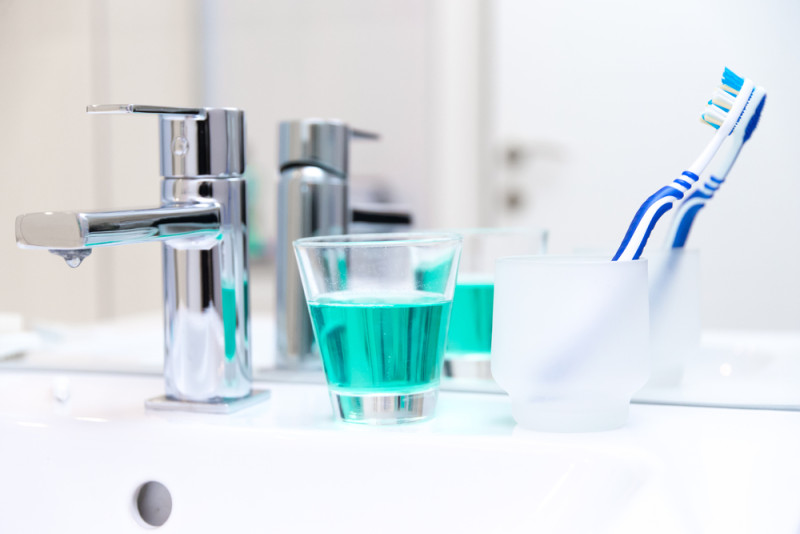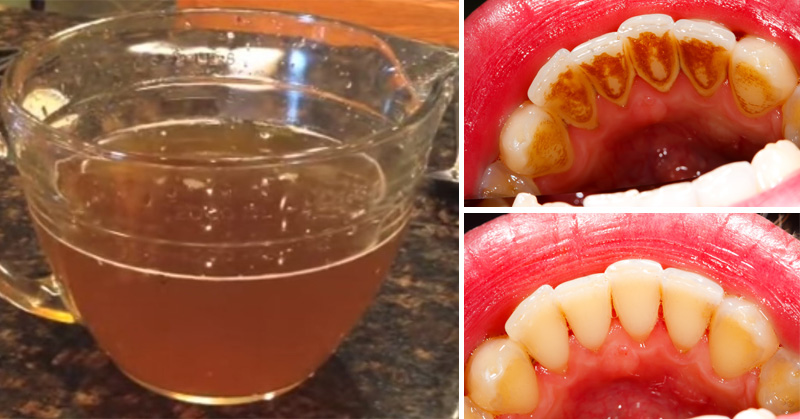Do you use mouthwash? Rinsing with mouthwash is part of a daily routine for many. Of course, oral care is important, but if you’re not careful, your mouthwash could be doing more harm than good. But the big surprise? Green tea can help!
Mouthwash and Oral Cancer
So if we look at the worst-case scenario from commercial mouthwashes, then we should consider oral cancer.
While oral cancer has multiple risk factors, Listerine and other popular brands of mouthwashes containing alcohol have been linked to an increased risk of developing oral cancer. In fact, close to 53,000 Americans and more than 640,000 people across the world are diagnosed with oral cancer every year. It can occur on the tongue, the floor of the mouth, or the gums and cheeks. And new research says that mouthwash may be partly to blame.
Mouthwash Ingredients
Most mouthwash contains alcohol, along with other toxins and chemicals that could be putting your health at risk, each time you gargle, hoping for fresh breath. In case you’ve never checked out the ingredient list on your mouthwash, here’s a rundown on just some of the chemicals that may be hiding in your minty rinse:
- Chlorhexidine: This chemical may be the cause of increased blood pressure associated with mouthwash use. According to a study published in the journal Free Radical Biology and Medicine, using mouthwash just twice a day can increase blood pressure and lead to serious heart conditions. Chlorhexidine kills the good bacteria in the body that is responsible for relaxing the blood vessels.
- Alcohol: Alcohol dries out the mucous membranes in the mouth and reduces saliva, causing bad breath. It changes the pH of the mouth and throat, and the Dental Journal of Australia found sufficient evidence that alcohol increases the risk of developing oral, head and neck cancers.
- Hexetidine (oraldene): Ingesting too much of this chemical can cause clotting in parts of the brain that control sensory and neural functions. Because of this, it may cause failure in these parts of the brain over time. Oraldene can also cause unstable heartbeat and allergic reactions, and it may be carcinogenic.
- Methyl Salicylate: Just one tablespoon of this substance is equivalent to over 23 300mg aspirin pills. An overdose can lead to kidney failure, loss of vision, low blood pressure, difficulty breathing, convulsions, vomiting and much more.
- Methylparaben: Methylparaben has been found within breast cancer tissues. Unfortunately, manufacturers commonly use it in mouthwash and women’s cosmetics, such as skin creams and deodorants. Studies suggest that it may increase the risk of breast cancer or accelerate the growth of tumors.

Green Tea and Plaque Removal
So you may be wondering how green tea can be an effective alternative to mouthwash. Well, some interesting research shows the benefits of green tea on oral health.
The good news is, a safer, more natural (and cheaper) form of mouthwash may be sitting in your kitchen cupboard. Researchers formed a study including participants with existing periodontal disease, and changed their diet to one emphasizing veggies, fruits, whole grains, potatoes, beans, peas, lentils and spices, with water as the preferred beverage. Researchers asked the participants to maintain their regular oral hygiene patterns, and studied the results. They found that eating healthier appeared to strengthen oral health.
Sure, you know to stay away from sugar. It rots your teeth, right? But scientists are now finding that other foods have an impact on our oral health. Researchers found that rinsing with green tea strongly inhibited the growth of the plaque bacteria on teeth within minutes. Just seven minutes after swishing with green tea, the number of harmful bacteria in the plaque scraped from participants’ teeth was nearly cut in half!
When researchers tested chlorhexidine against green tea, they found that green tea worked better in plaque reduction, without all of the harmful chemicals that mouthwash contains. Green tea is clearly the safer choice when it comes to health. Consider ditching your mouthwash full of chemicals for a safer and more effective way to practice oral health.


